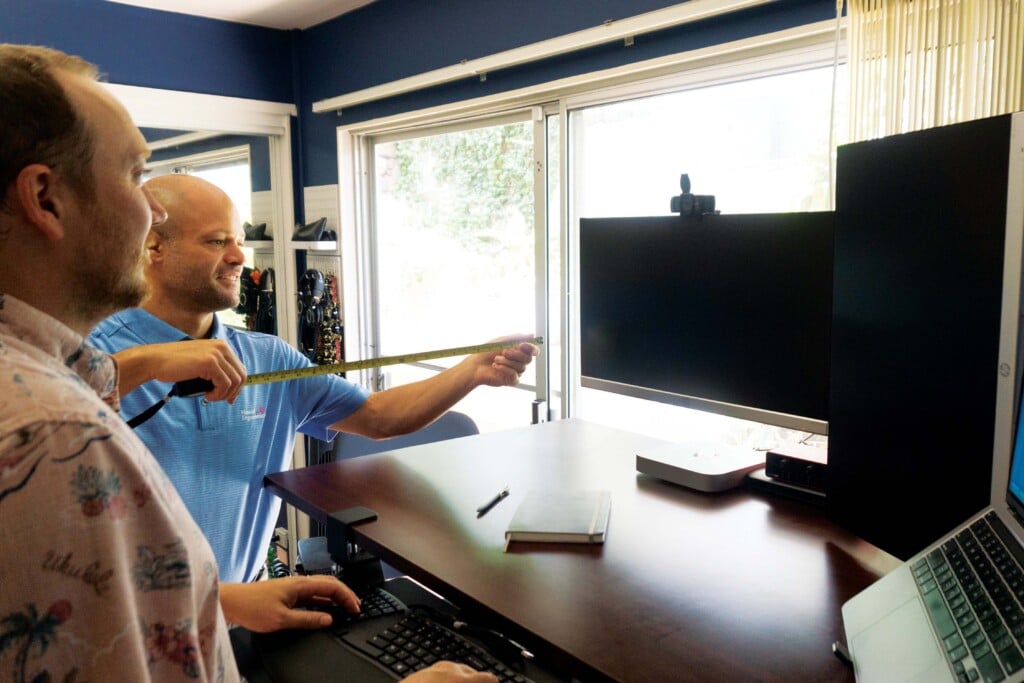The Careerist: Help! Food Pushers Are Stalking Me!

Q: I’m a vegetarian in an office that worships food. Daily spreads of manapua, brownies (not the kind from college), casseroles with ingredients I don’t recognize, and slow cookers of kalua pork (with a rice cooker on the side) fill our conference room like the “Be Our Guest” scene from Disney’s “Beauty and the Beast.” Every day is an assault of smells and passing platters. I don’t want to offend anyone, but that food’s just not my scene. How can I convey the message without a food fight?
A: They’re called food pushers – those relentless people who believe their chicken salad is the best ever made and you really must try it. Sometimes you imagine them in a dark alley, wearing sunglasses and a hat so as to not be easily recognized, shoving trays of malasadas and fried rice at you as you try to slip by. Remember Nancy Reagan, when she launched her war on drugs? She gave us the answer, way back then. “Just say no.”
The thing is, the food pushers are here to stay. A recent study by online grocer Peapod found that happiness is highest in offices where free food is routinely provided. A whopping 66 percent of Millennials reported they’d be more likely to accept a job offer if free food was part of the gig.
Margaret Marshall, author of “Healthy Living Means Living Healthy,” offers practical advice. “Be strong and use few words,” she says. “No thank you, no or not now will suffice. Do not invite further conversation on the issue.” She counsels to always remember to thank the food pusher, but to not feel obligated to accept. She also reminds us that, as with many things in life, their insistence may be more about them than you. “Jealousy can encourage the food pusher,” she says, noting that they may not feel comfortable with their own health habits and are trying to lure you to the dark side to appease their own fears and guilt.
Last, counter with your own cornucopia. If it’s potluck day, bring in your favorite fruits and roasted vegetables. Introduce your office mates to some of your favorite foods. Who knows? Maybe you’ll convert them. Or maybe they’ll set their sights on other targets, fearful that your hummus and quinoa might have to go home with them.
Q: I had fabulous New Year’s resolutions – getting to work early every day, creating team-building exercises with my staff, reading all the professional journals that come through the office – but now, only a few months into 2017, I’ve fallen flat on my face. I’m lucky to get to work on time; we’ve done one team-building exercise that was more awkward than helpful; and the pile of unread journals is a fire hazard. Can I hit control/alt/delete and start over?
A: Ah, the dreaded New Year’s resolutions. We start out so bold, so certain, don’t we? By spring, we’re lucky if we even remember what we resolved to do. In recent years, I’ve abandoned the resolutions, choosing instead a single word that will be my focus for the year. One year it was discipline – discipline to deadlines, completing tasks, getting things done. This year, I went with self-care – the notion that I should make a bit of time for me amid all the other demands of day-to-day life. I don’t know that it’s worked entirely, but at least I’m not staring at a list of failed resolutions, one more thing to feel guilty about.
Maybe you’re thinking about it all wrong. Mindfulness guru Leo Babauta’s book, “The Power of Less,” boils it down to two fundamental but powerful steps: Identify the essential, eliminate the rest. He advocates working on only one goal at a time – creating established reading time, for example, so you might catch up and then stay current on industry journals. Once that goal is mastered – has become a habit – you then move to the next one. Similar counsel comes from Laura Vanderkam, author of “168 Hours: You Have More Time Than You Think.” After interviewing dozens of successful, seemingly happy and well-balanced people, she concludes we all have 168 hours to work with every week, but, while most of us follow lists and fight the grind, the successful ones focus only on those things that really matter and let the other stuff fall to the side.
So, yes! Toss that list and reboot. After all, most of those lists are made the morning after a party and often best forgotten. Focus on the one or two goals you want to accomplish personally, and then broaden your scope to pursue sustained improvement across your department. Remember, you can’t do it all, and you sure can’t do it all at once.
Q: I’ve been in my job for almost two years and mostly love the work I do. There’s not much upward mobility from my current position, and I get this feeling that my boss just isn’t that into me any more. And, to be honest, I don’t roll out of bed every morning itching to get to the office and change the world like I did when I started. There’s nothing wrong – decent salary, decent benefits, work I like – but it ain’t what it used to be. Do I power through and make the best of it, quit and move on, or hang around until she fires me and then figure out what comes next?
A: The doldrums come to all of us at some point in our careers. First things first: Ask yourself if this is temporary, maybe just a lull in work you enjoy, or is it a spiraling disaster that leaves you feeling you’ll go postal if something doesn’t change quickly. If it’s the former, find ways to turn up the heat and challenge yourself. First, let your boss know you’re aware you’re not hitting on all cylinders and you’re working to change that. Ask about new projects you might take on, creative ideas you might initiate within the company. Odds are she’ll be relieved to know you’re aware of it and will help recalibrate your engagement. Also consider finding ways to be more collaborative and social in the office. Management and personnel research shows we tend to hole up when the doldrums take over, further isolating ourselves from the activity and energy that keeps us engaged in the workplace.
If, however, you just read all that and thought, “Nah. It’s too late for all that. I’m done,” then listen to your best inner counselor. At Hawaii Business’ Wahine Forum last fall, Kim Gennaula, Iolani School’s executive director of advancement, had sound advice for women who feel insufficiently valued or challenged at work. “Quit! Find a new job,” she says. She points out that, in this job market, there’s no reason for talented employees to stay pigeon-holed and unhappy in jobs that aren’t working for them. She also counsels, however, to be smart and always leave on good terms. You may well run into your old boss at Foodland, and nobody likes hiding in the frozen food aisle.






